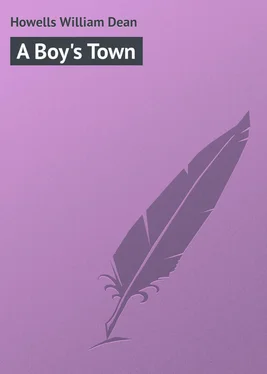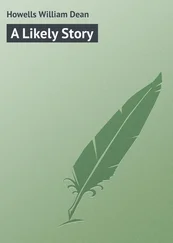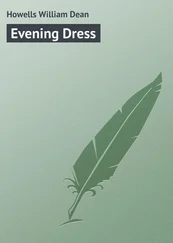William Howells - A Boy's Town
Здесь есть возможность читать онлайн «William Howells - A Boy's Town» — ознакомительный отрывок электронной книги совершенно бесплатно, а после прочтения отрывка купить полную версию. В некоторых случаях можно слушать аудио, скачать через торрент в формате fb2 и присутствует краткое содержание. Издательство: Иностранный паблик, Жанр: foreign_prose, foreign_children, на английском языке. Описание произведения, (предисловие) а так же отзывы посетителей доступны на портале библиотеки ЛибКат.
- Название:A Boy's Town
- Автор:
- Издательство:Иностранный паблик
- Жанр:
- Год:неизвестен
- ISBN:нет данных
- Рейтинг книги:5 / 5. Голосов: 1
-
Избранное:Добавить в избранное
- Отзывы:
-
Ваша оценка:
- 100
- 1
- 2
- 3
- 4
- 5
A Boy's Town: краткое содержание, описание и аннотация
Предлагаем к чтению аннотацию, описание, краткое содержание или предисловие (зависит от того, что написал сам автор книги «A Boy's Town»). Если вы не нашли необходимую информацию о книге — напишите в комментариях, мы постараемся отыскать её.
A Boy's Town — читать онлайн ознакомительный отрывок
Ниже представлен текст книги, разбитый по страницам. Система сохранения места последней прочитанной страницы, позволяет с удобством читать онлайн бесплатно книгу «A Boy's Town», без необходимости каждый раз заново искать на чём Вы остановились. Поставьте закладку, и сможете в любой момент перейти на страницу, на которой закончили чтение.
Интервал:
Закладка:
In some places Old River was a stagnant pool, covered with thick green scum, and filled with frogs. The son of one of the tavern-keepers was skilled in catching them, and I fancy supplied them to his father's table; the important fact was his taking them, which he did by baiting a cluster of three hooks with red flannel, and dropping them at the end of a fish-line before a frog. The fated croaker plunged at the brilliant bait, and was caught in the breast; even as a small boy, my boy thought it a cruel sight. The boys pretended that the old frogs said, whenever this frog-catching boy came in sight, "Here comes Hawkins! – here comes Hawkins! Look out! – look out!" and a row of boys, perched on a log in the water, would sound this warning in mockery of the frogs or their foe, and plump one after another in the depths, as frogs follow their leader in swift succession. They had nothing against Hawkins. They all liked him, for he was a droll, good-natured fellow, always up to some pleasantry. One day he laughed out in school. "Was that you laughed, Henry?" asked the teacher, with unerring suspicion. "I was only smiling, Mr. Slack." "The next time, see that you don't smile so loud," said Mr. Slack, and forgave him, as any one who saw his honest face must have wished to do. They called him Old Hawkins, for fondness; and while my boy shuddered at him for his way of catching frogs, he was in love with him for his laughing eyes and the kindly ways he had, especially with the little boys.
VI.
SCHOOLS AND TEACHERS
My boy had not a great deal to do with schools after his docile childhood. When he began to run wild with the other boys he preferred their savage freedom; and he got out of going to school by most of the devices they used. He had never quite the hardihood to play truant, but he was subject to sudden attacks of sickness, which came on about school-time and went off towards the middle of the forenoon or afternoon in a very strange manner. I suppose that such complaints are unknown at the present time, but the Young People's fathers can tell them how much suffering they used to cause among boys. At the age when my boy was beginning to outgrow them he was taken into his father's printing-office, and he completed his recovery and his education there. But all through the years when he lived in the Boy's Town he had intervals of schooling, which broke in upon the swimming and the skating, of course, but were not altogether unpleasant or unprofitable.
They began, as they are apt to do, with lessons in a private house, where a lady taught several other children, and where he possibly learned to read; though he could only remember being set on a platform in punishment for some forgotten offence. After that he went to school in the basement of a church, where a number of boys and girls were taught by a master who knew how to endear study at least to my boy. There was a garden outside of the schoolroom; hollyhocks grew in it, and the boys gathered the little cheeses, as they called the seed-buttons which form when the flowers drop off, and ate them, because boys will eat anything, and not because they liked them. With the fact of this garden is mixed a sense of drowsy heat and summer light, and that is all, except the blackboard at the end of the room and a big girl doing sums at it; and the wonder why the teacher smiled when he read in one of the girls' compositions a phrase about forging puddings and pies; my boy did not know what forging meant, so he must have been very young. But he had a zeal for learning, and somehow he took a prize in geography – a science in which he was never afterwards remarkable. The prize was a little history of Lexington, Mass., which the teacher gave him, perhaps because Lexington may have been his native town; but the history must have been very dryly told, for not a fact of it remained in the boy's mind. He was vaguely disappointed in the book, but he valued it for the teacher's sake whom he was secretly very fond of, and who had no doubt won the child's heart by some flattering notice. He thought it a great happiness to follow him, when the teacher gave up this school, and took charge of one of the public schools; but it was not the same there; the teacher could not distinguish him in that multitude of boys and girls. He did himself a little honor in spelling, but he won no praise, and he disgraced himself then as always in arithmetic. He sank into the common herd of mediocrities; and then, when his family went to live in another part of the town, he began to go to another school. He had felt that the teacher belonged to him, and it must have been a pang to find him so estranged. But he was a kind man, and long afterwards he had a friendly smile and word for the boy when they met; and then all at once he ceased to be, as men and things do in a boy's world.
The other school was another private school; and it was doubtless a school of high grade in some things, for it was called the Academy. But there was provision for the youngest beginners in a lower room, and for a while my boy went there. Before school opened in the afternoon, the children tried to roast apples on the stove, but there never was time, and they had to eat them half raw. In the singing-class there was a boy who wore his hair so enviably long that he could toss it on his neck as he wheeled in the march of the class round the room; his father kept a store and he brought candy to school. They sang "Scotland's burning! Pour on water" and "Home, home! Dearest and happiest home!" No doubt they did other things, but none of them remained in my boy's mind; and when he was promoted to the upper room very little more was added. He studied Philosophy, as it was called, and he learned, as much from the picture as the text, that you could not make a boat go by filling her sail from bellows on board; he did not see why. But he was chiefly concerned with his fears about the Chemical Room, where I suppose some chemical apparatus must have been kept, but where the big boys were taken to be whipped. It was a place of dreadful execution to him, and when he was once sent to the Chemical Boom, and shut up there, because he was crying, and because, as he explained, he could not stop crying without a handkerchief, and he had none with him, he never expected to come out alive.
In fact, as I have said, he dwelt in a world of terrors; and I doubt if some of the big boys who were taken there to be whipped underwent so much as he in being merely taken to the place where they had been whipped. At the same time, while he cowered along in the shadow of unreal dangers, he had a boy's boldness with most of the real ones, and he knew how to resent an indignity even at the hands of the teacher who could send him to the Chemical Room at pleasure. He knew what belonged to him as a small boy of honor, and one thing was, not to be tamely put back from a higher to a lower place in his studies. I dare say that boys do not mind this now; they must have grown ever so much wiser since my boy went to school; but in his time, when you were put back, say from the Third Reader to the Second Reader, you took your books and left school. That was what the other boys expected of you, and it was the only thing for you to do if you had the least self-respect, for you were put back to the Second Reader after having failed to read the Third, and it was a public shame which nothing but leaving that school could wipe out. The other boys would have a right to mock you if you did not do it; and as soon as the class was dismissed you went to your desk as haughtily as you could, and began putting your books and your slate and your inkstand together, with defiant glances at the teacher; and then when twelve o'clock came, or four o'clock, and the school was let out, you tucked the bundle under your arm and marched out of the room, with as much majesty as could be made to comport with a chip hat and bare feet; and as you passed the teacher you gave a twist of the head that was meant to carry dismay to the heart of your enemy. I note all these particulars carefully, so as to show the boys of the present day what fools the boys of the past were; though I think they will hardly believe it. My boy was once that kind of fool; but not twice. He left school with all his things at twelve o'clock, and he returned with them at one; for his father and mother did not agree with him about the teacher's behavior in putting him back. No boy's father and mother agreed with him on this point; every boy returned in just the same way; but somehow the insult had been wiped out by the mere act of self-assertion, and a boy kept his standing in the world as he could never have done if he had not left school when he was put back.
Читать дальшеИнтервал:
Закладка:
Похожие книги на «A Boy's Town»
Представляем Вашему вниманию похожие книги на «A Boy's Town» списком для выбора. Мы отобрали схожую по названию и смыслу литературу в надежде предоставить читателям больше вариантов отыскать новые, интересные, ещё непрочитанные произведения.
Обсуждение, отзывы о книге «A Boy's Town» и просто собственные мнения читателей. Оставьте ваши комментарии, напишите, что Вы думаете о произведении, его смысле или главных героях. Укажите что конкретно понравилось, а что нет, и почему Вы так считаете.












